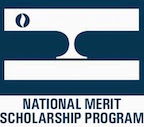 The National Merit Scholarship Corporation (NMSC) in Evanston, Illinois, was founded in 1955 with funding from the Ford Foundation to give scholarship awards to new college students based on their performance on the PSAT test. While the NMSC claims to have no data on the race of who receives their scholarships, data from the College Board shows that Blacks typically make up between 1 and 2 percent of the very top scorers on these types of standardized tests.
The National Merit Scholarship Corporation (NMSC) in Evanston, Illinois, was founded in 1955 with funding from the Ford Foundation to give scholarship awards to new college students based on their performance on the PSAT test. While the NMSC claims to have no data on the race of who receives their scholarships, data from the College Board shows that Blacks typically make up between 1 and 2 percent of the very top scorers on these types of standardized tests.
It is likely that very few Black students were qualifying for National Merit Scholarships. So, in 1964, the organization founded the National Achievement Scholarship Program for Outstanding Negro Students. This was subsequently shortened to the National Achievement Scholarship Program. Over the past 51 years, 34,000 Black students have received about $108 million in scholarship awards under this Black-only program.
Now the last cohort of National Achievement Scholars has entered college. The NMSC has announced that a new program will be administered by the United Negro College Fund called the Achievement Capstone Program. No longer will entering college students receive scholarships to help them pay for college. Now students who graduate from historically Black colleges or universities or predominantly Black educational institutions will be eligible to receive money to help them pay off college loans or to help them finance graduate study.
Bob Schaeffer, public education director of FairTest: National Center for Fair & Open Testing, told JBHE that he has no idea why the NMSC decided to end its program for Black students entering college. He said that “the termination of the National Achievement Scholars Program means that even fewer top African American high school students will receive college tuition aid from the National Merit Scholarship Program. The misuse of PSAT results to select semifinalists in the main competition has long guaranteed that very few Blacks win awards from the main program, because of historic racial gaps in test scores. The separate-but-unequal National Achievement Scholar competition provided a partial offset to that inequity. What will replace those funds for talented, low-income teenagers?”











I was a good student, but a poor child from a single parent household. I probably would not have become a chemical engineer without the National Achievement scholarship, sponsored by Consolidated Foods, that paid all of my tuition, plus some of my room and board during my first year at Purdue University. This scholarship, plus another from the company that launched my career, kept me from taking loans until my junior and senior years of undergraduate school. I recognize the dynamics of higher education have changed since 1979, but the end of this era is still very sad news to me.
After reading this article, I am as puzzled by this decision as Mr. Schaeffer. Given the data regarding minority students incurring more debt to complete a college degree, I think the only component that should be revised is the criteria for eligibility for scholarship money. Providing financial assistance at the front end (when they transition into college), would be of greater use for first generation students than awarding the money at the completion end. It has already been documented in many studies that one of the reasons why African American students as well as other minority students do not complete their four year degree is financial. This decision to earmark money for those after graduation and only those who have attended HBCUs is very puzzling.
If the collective Black community has an estimated “buying power of $1.1 trillion by 2015” (Baker 2013, para 1), then we should have already created and maintained a similar program to the National Merit Scholarship Corporation (NMSC) for the Black community. If this is correct, then, the Black community should be dutifully embarrassed in 2015 for not having the foresight to establish our own organization to perform similar functions. However, due to multiculturalism along with neoliberalism, the Black community are being socially engineered to be “all things for all people”. All the while, other racial and ethnic groups still are dictating whether or not if we will receive mis-education at their Historically White Colleges and Universities. In my view, this program is nothing more than a 21st century colonial project.
For those who dissent, you need to ask yourself why our Black high school graduates are matriculating at any of our 103-105 HBCUs? Until we have enough faith in our own Black people to educate our Black college students, we will continue to be cannon fodder for everyone else.
Whoever thought of replacing a program designed to encourage and assist talented African-Americans to enter and complete college with a program to assist potential African-American graduate students is TOTALLY missing the point. This is a true shame. How many promising students will never get to the point where they might be eligible because they can’t afford to complete college? A dunce move, especially ironic coming from an organization supposedly concerned with brilliance.
I couldn’t agree more, Lynn. Four-year undergraduate scholarships for low-income students are desperately needed regardless of race, but for Black students the need is still as urgent as it was 50 years ago. I think a good response to this action is to find other organizations who are having success with similar efforts–or have the potential to–and help fund their scholarship programs. Or, get together and create one.
I was a National Achievement Scholar in 1971. I didn’t receive diddly-squat except a picture in my high school year book. Indeed, that was the first and only time I heard about the award. Go figure.
Dear Dr. Whitson,
I am very sorry to hear that you did not receive any financial help from NAS. I worked for the organization for a little over a year between undergrad and grad school, and your name would probably have been on the lists that I worked with at that time.
I was the only white person who worked in the program then. The experience was life changing for me after growing up in a small town in northern Illinois where the only black student in my high school came from a foster care program in another town. I have always felt good about the work that I did there and grateful to have had the opportunity to get to know the dedicated, sincere, and committed people who worked there. I still believe that everyone in the program was doing their level best. It makes me very sad to know that despite our efforts, you did not receive the help you deserved. I wish I could go back in time and figure out what went wrong.
The only bright spot for me is to know that, despite failing to receive this support, you were able to complete your PhD. It is upsetting to me to know that these scholarships will no longer be available — another sorry symptom that demonstrates the strength of the New Jim Crow.
For what it’s worth, I do wish you well and apologize for any part that I might have inadvertently played in preventing you from taking advantage of any funds that might have been due to you from NAS.
Sincerely,
Debora Chandler
“While the NMSC claims to have no data on the race of who receives their scholarships…”
How is that possible when the PSAT asks for racial data on the student test form? Yes, it’s optional but why collected it then claim you have no info on who receives the scholarship? Sounds like a scheme to give out even less money since more blacks start college than finish.
Read some of Walter Williams, PhD UCLA Econ, pieces on higher education and minority students for good insights.
My son was a 2008 National Achievement Scholar. His high school was required to attest to his status as a black individual. What got me though is that he was also National Merit. The Ivy League and other “high level” colleges would accept money from National Achievement but not from National Merit. I found that out after his older sister was National Merit but did not check the “African American” box. Also interesting was that of all the National Achievements from my state, my son was the only one who was also National Merit. That the colleges would take outstanding students from only program is discriminatory to me.
In 2005, if a student qualified as both a NAS and a NMS, s/he had to declare which of the two financial awards s/he would take. That is, the student did not receive two financial awards… The student’s college of choice would then receive the financial award from her/his designated scholarship (NAS or NMS).
I am very sad to hear about the end of this scholarship. Fortunately, at least one of my children was able to benefit from this financial award to attend the college of his choice. I think he belonged to the last group of high school graduates who received this award (class of 2015). He has since graduated college as a systems engineer. I am saddened that other bright young men and women will not benefit. It does not make any sense at all and I agree with one of the other comments when they said it is appalling that we have not done something about it. The National Merit for Hispanic Students still continues. How so? Don’t get me wrong, I don’t want them to lose it but why was ours taken away?
I was a National Achievement Finalist and a National Merit Finalist (in 1996, in Lexington, Kentucky). Somehow I was rejected for admission by Harvard College and wait-listed at Yale and Brown. So for me, the decision came down to Cornell (where I was offered “Cornell National Scholars,” unrelated to the NMSQT competitions) and Emory (where I was offered the full-ride Woodruff Scholarship). After I decided where to go to college (Emory won), I made the election between National Achievement or National Merit. I elected National Merit. I chose the more-selective award because (1) it denotes a far higher achievement due to the test-taking pool from which National Merit Finalists are drawn (100% of test-takers) and (2) Emory sponsored an “Emory National Merit Scholarship” award within the NMSQT universe. The Emory National Merit Scholarship was only $750, but I didn’t care; I was officially a National Merit Scholar by virtue of these elections — an objectively impressive accomplishment that makes its way into my academic bios to this day (I am a former Associate Professor of Law).
On another note, in my native Kentucky as soon as the list of semi-finalists came out in Fall 1995, I did my own racial count. (I was Editor in Chief of my school newspaper, was a varsity starter on an undefeated academic team, and came from a storied civil-rights family, so I knew how and what to research independently.) Three of our state’s 200 National Merit Semifinalists in 1996 were Black/African-American. This statistic is consistent with the reporting high in the story here that it’s believed that 1-2 percent of National Merit Finalists are Black/African-American.
I offer these rambling recollections in the public interest. The NMSQT world is esoteric, even though every seriously ambitious high-school student in America clamors to win the inarguably prestigious, highly credible recognition this program fosters — even if Harvard and Yale colleges don’t automatically credit the “unicorn” status of a Black male National Merit Finalist with an offer of admission. (Yes, those 1996 rejections still puzzle me.)